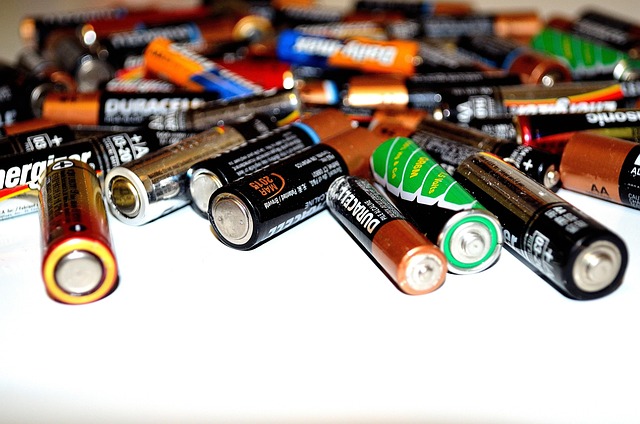Cost-Free Battery Recycling in Manhattan: A Comprehensive Guide
In Manhattan, NY, efficient battery recycling is crucial for reducing e-waste and managing hazardous materials. Local initiatives, like dedicated e-wa…….
In the heart of New York City, amidst the bustling streets of Manhattan, lies an unsung hero of sustainable practices—battery recycling. This article delves into the intricate world of battery recycling, specifically focusing on its implementation and impact in Manhattan, NY. Battery recycling is not just a local initiative but a global movement towards a greener and more sustainable future. By understanding the ins and outs of this process, we can appreciate its role in environmental conservation, economic growth, and technological innovation. This exploration will cover various aspects, from historical context to future prospects, providing a comprehensive guide to battery recycling in Manhattan and its broader implications.
Battery recycling is the process of collecting, dismantling, and processing used batteries to recover valuable materials and reduce environmental impact. In Manhattan, this initiative primarily focuses on recycling portable and vehicle batteries, ensuring proper disposal and resource recovery. The core components include:
The concept of battery recycling has evolved over the past few decades as electronic devices became more prevalent. In Manhattan, the need for efficient recycling programs gained momentum with the city’s rapid urbanization and increasing e-waste generation. Early efforts focused on establishing collection points and raising public awareness about proper battery disposal. Over time, these initiatives have expanded to include advanced recycling technologies and strategic partnerships, making Manhattan a leader in sustainable battery management.
Battery recycling offers numerous environmental, economic, and social benefits:
Battery recycling is a global phenomenon, with Manhattan’s efforts contributing to a larger international movement. The United Nations Environment Programme (UNEP) has emphasized the importance of sustainable battery management, leading to increased collaboration and knowledge sharing among nations. New York State, including Manhattan, aligns with global standards set by organizations like the International Electrotechnical Commission (IEC) for safe and efficient recycling practices.
The global battery recycling market is experiencing significant growth, driven by:
Manhattan’s battery recycling economy is a complex web of stakeholders, including:
The market attracts investments from various sources:
Battery recycling contributes to Manhattan’s economy in several ways:
Technological breakthroughs have revolutionized battery recycling, making processes more efficient and environmentally friendly:
Emerging technologies hold promise for further enhancing battery recycling:
Manhattan’s battery recycling efforts are guided by a comprehensive legal and regulatory framework:
Key policies shape the recycling landscape:
Despite its numerous benefits, battery recycling faces several challenges:
Strategies to address these issues include:
Manhattan has implemented successful community-based battery collection initiatives, such as the “Green Battery Drop-Off” program. This program establishes permanent drop boxes at convenient locations like grocery stores and community centers. The campaign encourages residents to bring used batteries for recycling, offering incentives like discounts at participating businesses. The data shows a 25% increase in battery recycling rates within the first year, highlighting the power of community engagement.
The New York State Department of Environmental Conservation (DEC) partnered with a private company to establish an advanced battery recycling facility in Queens. This state-of-the-art facility employs hydro-metallurgical processes and automated sorting systems, enabling high-efficiency recycling. Since its opening, the plant has processed thousands of tons of batteries, recovering valuable materials while significantly reducing environmental impact.
Manhattan’s recycling efforts contribute to international collaborations, such as the IEC’s battery recycling standards. These global agreements ensure consistent and safe recycling practices across borders. By participating in such initiatives, Manhattan reinforces its position as a leader in sustainable practices and facilitates cross-border trade of recycled materials.
The future of battery recycling in Manhattan and beyond holds immense potential:
For Manhattan’s battery recycling program:
Battery recycling in Manhattan, NY, is more than just a waste management strategy; it’s a testament to the city’s commitment to sustainability, economic growth, and technological advancement. From its historical roots to its global impact, this initiative showcases the power of collective action. By understanding the core components, market dynamics, and future prospects, we can appreciate how Manhattan contributes to a greener world. As technology evolves and global collaboration intensifies, battery recycling will continue to shape the environment, economy, and industry landscape in profound ways.
Q: How do I properly dispose of old batteries at home?
A: In Manhattan, you can drop off used batteries at various collection points, including many local retailers and community centers. Never dispose of batteries in regular trash; they should be recycled to prevent environmental harm.
Q: What materials can be recovered from old batteries?
A: Batteries contain valuable metals like lithium, cobalt, nickel, and manganese, as well as plastics and other components. Advanced recycling technologies enable the recovery of these materials for reuse in various industries.
Q: Is battery recycling cost-effective for businesses?
A: Yes, proper recycling can reduce costs associated with waste disposal and provide a steady supply of recycled materials, which may be cheaper than virgin resources. Additionally, government incentives and grants often support business participation in recycling initiatives.
Q: How does battery recycling impact the environment?
A: Battery recycling significantly reduces environmental harm by preventing toxic substances from reaching landfills and water sources. It conserves natural resources, saves energy, and minimizes the need for extracting raw materials from the earth.
Q: Can EV batteries be recycled, and how do they differ from regular batteries?
A: Yes, EV batteries can and should be recycled due to their valuable components and potential environmental impact. They require specialized recycling processes due to higher energy density and unique chemical compositions compared to conventional batteries.

In Manhattan, NY, efficient battery recycling is crucial for reducing e-waste and managing hazardous materials. Local initiatives, like dedicated e-wa…….